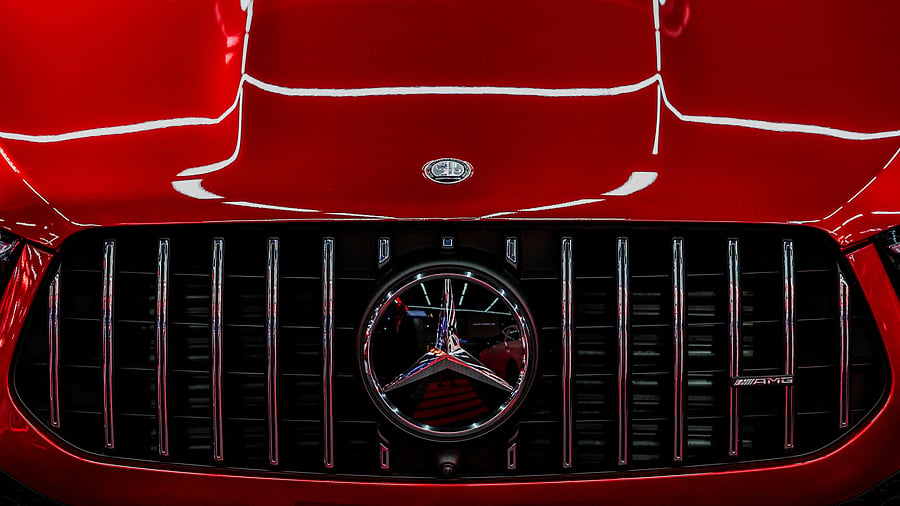
The Mercedes-Benz logo is displayed at the 46th Bangkok International Motor Show in Bangkok, Thailand, March 24, 2025.
Credit: Reuters Photo
By William Wilkes
Mercedes-Benz Group AG is considering withdrawing its least expensive cars from the US because President Donald Trump’s auto tariffs would likely make their sales economically unfeasible, according to people familiar with the matter.
The German automaker is mulling cutting sales of more entry-level models like the small GLA sport utility vehicle as part of broader tariff contingency plans, the people said, declining to be identified because the deliberations are private. Trump’s 25 per cent duties are scheduled to take effect this week.
Mercedes hasn’t made a final decision and may still shift course depending on how the levies are implemented, the people said. A lack of clear guidance from Washington is leaving executives frustrated and unsure how to respond, they said.
Mercedes is among manufacturers navigating a worsening trade war that risks hurting their sales and disrupting supply chains. Aston Martin Lagonda Global Holdings Plc and Ferrari NV plan to raise prices for some of their cars in the US, with Volkswagen AG considering expanding local manufacturing. Stellantis NV’s Chairman John Elkann met with Trump on Monday, and the Chrysler parent is part of a group of automakers making a last-ditch effort to sway his administration.
Cutting exposure to the entry-level premium market would allow Mercedes to sidestep tariffs on its least profitable vehicles. For models like the GLA — which starts at $43,000 in the US — duties could turn already thin margins into losses if they’re not passed on to customers. Removing the cars from the market may also encourage drivers to opt for more premium models. The US remains a key market for Mercedes because of robust demand for the more profitable, larger SUVs there.
Trump’s trade moves, meant to bring back American jobs, have sowed chaos across the industry. With key details still missing — most notably Annex 1, the official list of parts and components subject to the 25% tariff — their ability to act is severely constrained, said Andrew Bergbaum, managing director at AlixPartners, a consultancy advising several global automakers.
“It’s a major headache,” Bergbaum said. “Not knowing what’s coming makes it hugely difficult to make any strategic decision.”